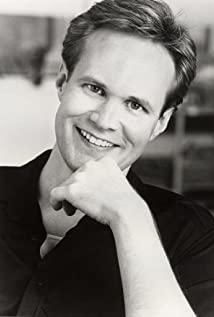On the afternoon of August 27, 2016, I went to the "Ozu Concept Study Room" to participate in the annual "Half-Century Film Chronicles", and shared with you the Czech "New Wave" movies, and later on American independent films. Looking at the world cinema, although independent films exist in different forms in different countries, they should not be ignored. I think the hope of Chinese films lies in independent films (or author films). They are young and have a broad vision. Even though the quality is uneven, they should have an objective attitude of tolerance. Taking into account their environment, they can be Making a personal film under pressure is a gesture and an expression in itself. After years, once the floodgates are opened, their efforts may have created a "new wave" of Chinese movies.
Before, I watched the Shanghai Film Museum. Although Chinese movies began in 1905 in "Dingjun Mountain", it was still in the 1920s until the end of the 1940s that the Chinese film started and made its glory. There are so many amazing directors, actors and movies, crowds are surging, bright and dazzling, in the long circular corridor of light and shadow, those sincere, diverse and simple images really hit people's hearts directly, but it is a pity that they are abrupt. Stop, always stay in that distinct year.
Even after the well-known Japanese film critic Tadao Sato studied Chinese films in the early 1980s, he sighed and said that he did not expect that before the 1950s, China could actually produce so many excellent films, which is not many in the world. See you.
When I walked on Huashan Road, Wukang Road, and then crossed Huaihai Road (formerly Xiafei Road), the long century-old street, the sycamore trees standing quietly on both sides of the road, a long line of celebrities from Ba Jin to Zhao Dan’s former residence In the former residence, there are so many endless lights and shadows. When you turn around any street corner, you can see the historical background and cultural deposits. It seems to be telling the colorfulness of old Shanghai, and it is only in such a wise and silent place. In order to create so many vivid and appetizing classic images. This scattered and patchy historical reference, and the refreshing sense of tranquility, may be difficult to appreciate in other cities in China.
After the 1950s, the Shanghai Tianma and Haiyan film studios have been continuing to shoot, but they are gradually moving away. Most of them have been far away from the connotation of the film itself, or the trend of taste, conceptualization, facial makeup and dogmatization has changed. It's becoming more and more obvious. Of course, films such as "My Life", "Early Spring February", "Lin's Shop", and "Li Shizhen" still seem to be masterpieces, but they can't be compared with the old Shanghai films, and they can't be viewed in the same way.
The decade of the "Cultural Revolution" has reached a stupid extreme. The film "Spring Miao" shot by the talented Xie Jin is in the limelight, but the string of class struggle is always the main theme. The films of the same period, such as "Break", "Jubilant Little Lianghe", and "Second Spring" are all marked by class struggle.
In fact, once Chinese filmmakers give some sunshine, they will be bright. I always believe this. They are capable of making more good movies. Reluctant rules and regulations always make Chinese movies hesitate and even degenerate to an extremely low-powered state.
I have been paying attention to the small production films of various countries, mainly the light and shadow that have not won the award with a strong personal imprint. There are several reasons why people tend to neglect their existence. One is that they are difficult to see and the audience is very small. The other is that even if the film is made quite well, these directors or authors are habitually reluctant to participate in film festivals and are not accepted. Most people are familiar with it, and some are not even publicized when they are photographed. It seems that it is their consensus to stop all commercial activities. Therefore, the release of these films as products depends only on the discovery and recommendation of viewers.
In 120 years of light and shadow, this kind of bead found by film critics and viewers is not uncommon. Think about it, the United States alone produces two or three hundred independent films in a year. These personal styles of creation always make us shine. Some even make me feel that some of them go further and more grounded than those small European films. The so-called grounding atmosphere, without exception, they are all realistic and harsh themes, avant-garde expressions, wandering between real movies, documentaries and dramas, it is easy to confuse the type and style of the film.
In fact, this is also the personal style advocated by the German filmmaker Kruger in the 1950s. His "Farewell to Yesterday" is a mixture of many ingredients and a mixture of all. His idea is simple, he uses his pioneering art. Expression greatly liberates the imagination of the audience. The "Oberhausen Declaration" also expresses the same point of view, as his famous saying "We are separated from yesterday not because of the abyss that cannot be crossed, but because of the changed circumstances." The girl Anita came to West Germany from East Germany, and her situation was different.
Xia’an Hyde’s "Tallula" (2015) is a good small production film in the United States. She deals with the theme of a street girl stealing a baby. She seems to be forced, but she also turns the fake into reality to make the one who lost her baby. Mother is hoarse. Peggy’s wandering girl Tallulah originally wandered around with her boyfriend Nico. Under the moonlight of Tennessee, Niho Nico didn’t want to follow her to India to climb the Himalayas. He just wanted to go back to his mother’s house in Manhattan, New York. Then sneak away secretly.
Tallulah had to drive a broken RV to New York to find Nico. Margaux, Nicol's mother, said that he was not here, and indeed he did not come back. I don't know where to go. At this time Margaux is at a low ebb in her life. The relationship between her husband and wife has long since broken up. Her husband forced her to divorce. As a marriage education expert, she is powerless to her marriage and family, which is somewhat ironic. The film is good at creating a limited comparison, and it also makes viewers more associations.
At this time, Tallulah, whose life has entered an extremely difficult situation, was stealing leftovers when she was accidentally taken into the house by the confused woman Ford who was opening the door as a hotel manager and asked her for help. Ford, who is vain and drunk, said that he avoided her husband and came here to see a big money, and this child was her burden, because she would not take it, so let Tallulah take the child. Tallulah, who was desperate, had no choice but to accept it although he was reluctant.
She can't fix the problem of theft, so she can take what she sees, but the baby is to be brought. When Ford came back in frustration, he was so drunk that he fell to bed and fell asleep. Talloo wanted to leave, but when he saw the little poor weeping and crying, he couldn't bear to leave her, so he had to pick up the baby and leave. When Ford woke up, he found out that his baby was missing, and the police intervened to search for it.
At this time, Tallulah held the child and found Nicol’s mother Margaux. Margaux refused from the beginning to slowly accept it. Of course, this was due to Tallula’s lying that the baby was Nicol’s relationship with her. pregnancy. Living together, it is inevitable to have some small frictions and disputes. For example, Tallulah has a lot of bad habits. Not to mention theft, he tore off Margaux’s husband’s oil paintings one by one to remake up his face, and he yelled at the truck downstairs and sold fruit juice. Xi is out of character, but Margo has to endure it, because McGrady is her grandson.
Living together with two women from different backgrounds is very appetizing in itself. One is wild and vulgar, the other is arrogant and arrogant. The same is that they are both in the swelling and difficult period of life. Although the circumstances are different, they have to keep each other warm. Even if the noise is so loud, but I still enjoy it. There is also a funny little baby who joins in the fun to neutralize, the contradiction can always be calmed down in the agitation. Looking at the yelling little guy, his heart was instantly melted. This involves human nature, a theme of variation on love.
Here is an episode. Margaux’s husband Steven invited Margaux and Tallulah to a family dinner. At this time, Margaux’s husband had lived with a gay man from Bhutan. Stephen asked Tallulah, your name is because of the tower. Lula Bankhead (a well-known Hollywood actress who has appeared in Hitchcock’s "Lifeboat", her personal expressiveness is unique) came, Tallulah said yes, and said no, because of her parents She was pregnant at a Talluladu club at the time.
Stephen said that Tallulah Bankhead once said a famous saying "If life really comes back, I will make the same mistake again." Steven asked Margaux inadvertently, where was our horse pregnant. Margaux said that I was reading at the time. Unexpectedly, this statement caused controversy and mutual accusations. The undivorced couples quarreled again and became unhappy. Scattered.
During this period of time, both TV and the "New York Times" reported that the baby McGrady was missing, which made Tallulah panic. At this time, he was seen by McGrady’s confused mother on the side of the road. The pursuit was unsuccessful. The police learned This news, and Steven reported it to the police, and the police found Margaux. Ford told the truth to Margaux, and he did tell Tallulah that she felt that the little guy was her mental burden. She could not take the baby safely, and often thought about not wanting her. That day, Tallulah was deliberately brought, but Once McGrady is really gone, people will be dead.
At this time, Tallulah had already brought her baby to the beach, where Marco had decided to follow her far away. She prayed to the sky to bless the baby. She felt something was wrong with the baby, for fear of being sick. At this time, Marco appeared unexpectedly and asked about the situation. Then they came to the hospital together. They couldn't register for medical treatment and had to go to the emergency room. Marco asked her to leave as soon as possible, and he took care of everything. Indeed, she left, got down to the subway station, and faced the rushing subway, she hesitated, she was reluctant, she was anxious, and she came back.
The little baby cried more than ever, and the little one stopped crying if she hugged him. Of course, the police, Ford and Ford’s husband Russell rushed over, Tallulah said to Ford, you don’t love McGrady at all...
But McGrady is her daughter, and the police ordered her to give the baby to Ford. Can she have another choice if she doesn't give it. The police took her away. In the car, the sheriff asked her with a smile, do you always develop the habit of protecting babies like this. She smiled slightly. Yeah, who can love Baby McGrady like she does.
Everyone has a hard-to-read scripture, alienation and indifference, loneliness and loneliness, rain and spirits, mixed with knots that are difficult to untie the heart. "Tallula" seems to revolve around the disappearance of a baby, but it is actually about people. With regard to how people care for life itself, Margaux and Tallulah, who have never met, have a mother-daughter intersection, and because the baby McGrady serves as a bond of love, the two walked from doubt to their hearts, but this This kind of trust is extremely fragile, because they are not of the same class, and their ideas suddenly become contradictory according to different situations.
At the end of the film, Margaux came to the park where Tallulah came with her baby before. She lay down and a green leaf fell. She slowly rose up, losing the gravity of the earth. She grabbed the branch, as Tallula said. Yes, she always had such dreams, feeling that her body lost its center of gravity, and when she floated up, she desperately grasped the branches. Unexpectedly, this anxious dream continued to Margaux's palm. This is the code of love between people, and after time, it has a bridging effect. Presumably, Margaux is waiting for Tallulah quietly.
2016, 8, 28
View more about Tallulah reviews











